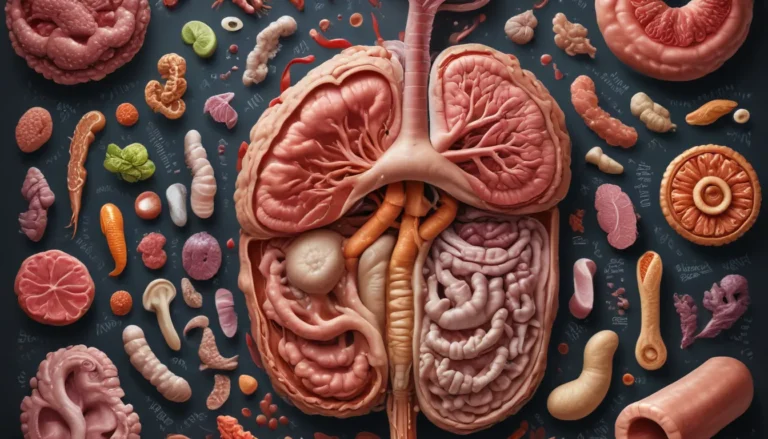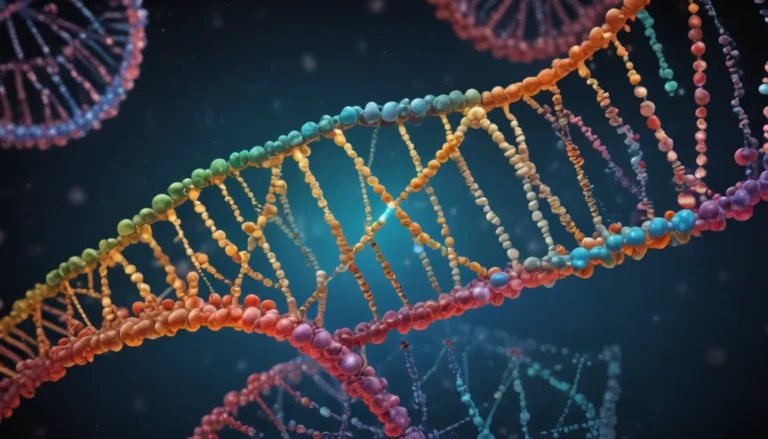A Note About Images: The images used in our articles are for illustration purposes only and may not exactly match the content. They are meant to engage readers, but the text should be relied upon for accurate information.
Exocytosis is a captivating biological process that holds a pivotal role in cellular operations. It is responsible for the discharge of essential molecules, such as neurotransmitters, hormones, and enzymes, from the confines of a cell into its external surroundings. This intricate mechanism fosters intercellular communication, regulates bodily functions, and executes vital processes like digestion and immune responses. In this enriching discourse, we will delve into the enchanting realm of exocytosis and uncover 16 astounding facts that will deepen your comprehension of this biological marvel.
A Closer Look at Exocytosis
Exocytosis emerges as a fundamental procedure that underpins a myriad of cellular functions. It empowers cells to expel substances and engage in fruitful communication with their environment.
The Dynamics of Exocytosis
Exocytosis stands as a form of active transport that demands energy to ferry molecules from within the cell to the exterior. It operates as an active process that hinges on the fusion of vesicles with the cell membrane.
The Role of Neurotransmitters
Neurons heavily rely on exocytosis for the release of neurotransmitters, which act as messengers between nerve cells. This process is imperative for seamless brain function and communication.
The Significance of Hormones
Endocrine cells harness exocytosis to release hormones into the bloodstream. These hormones orchestrate an array of bodily functions and uphold physiological equilibrium.
Cell Growth and Repair
During phases of cell growth and repair, exocytosis assumes a crucial role in assimilating fresh membrane components and ferrying them to the cell surface.
A Guardian of the Immune System
The immune response hinges on exocytosis as immune cells discharge signaling molecules to communicate with other cells and coordinate defense mechanisms.
Nurturing Digestion Through Exocytosis
In the digestive realm, exocytosis facilitates the release of digestive enzymes from cells within the stomach and intestines, fostering the breakdown and absorption of nutrients.
The Miracle of Lactation
Exocytosis plays a pivotal role in lactating mammals, enabling mammary gland cells to dispense milk and nourish newborns.
Maintaining Membrane Equilibrium
Exocytosis contributes to upholding the cell’s membrane surface area by integrating fresh membrane material and compensating for losses during endocytosis.
Facilitating Synaptic Transmission
Within synapses, exocytosis orchestrates the discharge of neurotransmitters from the presynaptic cell into the synaptic cleft, facilitating nerve cell communication.
The Influence of Calcium Ions
Calcium ions emerge as pivotal players in triggering exocytosis. Their binding to specific proteins sets the stage for vesicle fusion with the cell membrane and subsequent content release.
Regulation by Hormones and Signaling Molecules
Hormones and signaling molecules wield the power to modulate exocytosis, dictating the timing and extent of substance release to orchestrate precise cellular responses.
Precision in Execution
Exocytosis operates within strict regulation to ensure substances are released at the right time and place within the cell. Dysregulation may yield detrimental effects on cellular function.
Engaging in Neurotransmitter Recycling
Post neurotransmission duty, exocytosis ushers in the reuptake, recycling, and repackaging of neurotransmitters into vesicles for future utilization.
A Key Player in Cell Division
In plant cells, exocytosis assumes a pivotal role in molding the cell plate during cytokinesis, culminating in the separation of daughter cells.
Responding to Cellular Signals and External Cues
Cellular signals and external stimuli hold the power to either trigger or inhibit exocytosis, empowering cells to adapt to varying environments and physiological demands.
Illuminating the Path Forward
Exocytosis emerges as a captivating and indispensable process that shapes various biological functions. From neurotransmission to cellular growth and development, exocytosis stands as a bedrock for molecule release and maintenance of cellular equilibrium. Embracing the nuances of exocytosis unveils profound insights into cellular operations and the broader landscape of human physiology.
FAQs
- What is exocytosis?
-
Exocytosis denotes a cellular process where molecules or particles are liberated from a cell through vesicle fusion with the cell membrane.
-
What roles does exocytosis play in the body?
-
Exocytosis partakes in functions encompassing neurotransmission, hormone secretion, immune responses, and cellular growth and development.
-
How does exocytosis differ from endocytosis?
-
Exocytosis involves molecule release from a cell, whereas endocytosis pertains to molecule intake by the cell.
-
What are the types of exocytosis?
-
The two primary types are constitutive exocytosis, which occurs continuously, and regulated exocytosis, triggered by specific signals.
-
Can exocytosis be disrupted?
-
Yes, disruptions in exocytosis can manifest in various diseases, including neurological disorders and immune system dysfunction.
-
How was exocytosis discovered?
-
Swedish cell biologist Björn Ekwall first observed and characterized exocytosis in the 1950s.
-
What molecules are key in exocytosis?
-
Crucial molecules in exocytosis include vesicles, membrane proteins, and cargo molecules such as neurotransmitters.
-
How does exocytosis impact neurotransmission?
-
In neurotransmission, exocytosis mediates the release of neurotransmitters from the presynaptic neuron to the synaptic cleft, facilitating nerve signal transmission.
-
Can exocytosis be leveraged for therapeutic purposes?
-
Indeed, targeting exocytosis pathways presents therapeutic potential for an array of diseases, from diabetes to cancer.
-
How does exocytosis influence cell secretion?
- Exocytosis empowers cells to secrete substances like hormones, enzymes, and antibodies into the extracellular space.
As we journey through the magnificent realms of cell biology, let us embrace the wonders of exocytosis and its pivotal role in shaping our understanding of cellular intricacies. Let the revelation of these fascinating facts kindle a newfound curiosity and appreciation for the remarkable world within each cell. Join us in exploring the web of biological marvels that await your discovery!






